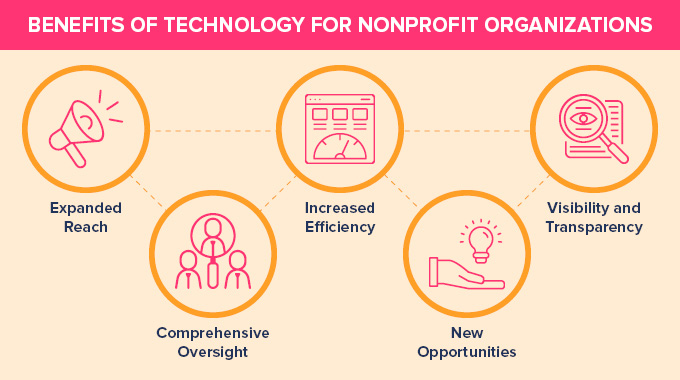Benefits of Nonprofit Organizations
Nonprofit organizations play a crucial role in society by addressing various social, cultural, and environmental issues. In this article, we will explore the numerous benefits that nonprofit organizations offer to both individuals and communities.
Enhancing Social Welfare
Nonprofit organizations are dedicated to improving social welfare by addressing critical issues such as poverty, education, healthcare, and environmental conservation. Through their programs and initiatives, nonprofits strive to create a positive impact on society, promoting equality and well-being.
Community Development
Nonprofits play a vital role in community development by fostering collaboration, unity, and empowerment. They provide resources, support, and services that enhance the overall quality of life within communities. Nonprofits often work closely with residents, businesses, and government entities to identify and address community needs effectively.
Volunteerism and Civic Engagement
Nonprofit organizations rely heavily on volunteers who generously contribute their time, skills, and expertise to support various causes. Engaging in volunteer work not only benefits the organization but also provides individuals with opportunities for personal growth, skill development, and a sense of fulfillment. Nonprofits also encourage civic engagement, motivating individuals to actively participate in shaping their communities.
Advocacy and Awareness
Nonprofits often serve as advocates for marginalized groups and raise awareness about important social issues. They work tirelessly to influence public opinion, promote policy changes, and advocate for the rights and well-being of those who may not have a voice. By amplifying these concerns, nonprofits contribute to positive societal transformations.
Funding and Grants
Nonprofit organizations rely on various funding sources, including grants, donations, and sponsorships, to sustain their operations and fulfill their missions. They actively seek financial support from individuals, corporations, and government agencies committed to making a difference. These funds enable nonprofits to implement impactful programs and initiatives that address pressing social needs.
Transparency and Accountability
Nonprofits are committed to transparency and accountability, ensuring that resources are utilized responsibly and efficiently. They adhere to strict financial reporting standards and provide regular updates to stakeholders, including donors, volunteers, and the general public. This transparency fosters trust and confidence in the organization’s operations and encourages continued support.

Nonprofit organizations play a vital role in society, offering numerous benefits that contribute to social welfare, community development, volunteerism, advocacy, and more. By supporting nonprofits and actively participating in their initiatives, individuals can make a significant impact and help create a better world for all.
Frequently Asked Questions about the Benefits of Nonprofit Organizations
1. What are the benefits of donating to a nonprofit organization?
Donating to a nonprofit organization allows you to support a cause you care about, make a positive impact on society, and receive potential tax benefits.
2. How do nonprofit organizations benefit the community?
Nonprofit organizations provide essential services and support to the community, such as education, healthcare, social services, environmental conservation, and arts and culture.
3. What are the advantages of working for a nonprofit organization?
Working for a nonprofit organization allows you to contribute to a meaningful cause, make a difference in people’s lives, and often offer a more flexible and fulfilling work environment.
4. Are there any financial benefits of starting a nonprofit organization?
Starting a nonprofit organization can provide potential tax exemptions, eligibility for grants and funding, and the ability to receive donations from individuals and corporations.
5. How do nonprofit organizations benefit the economy?
Nonprofit organizations stimulate economic growth by creating jobs, purchasing goods and services, and generating revenue through fundraising activities.
6. Can nonprofit organizations receive government funding?
Yes, nonprofit organizations can receive government funding through grants, contracts, and partnerships with government agencies at the local, state, and federal levels.
7. What are the social benefits of nonprofit organizations?
Nonprofit organizations address social issues and promote social change, fostering a sense of community, inclusivity, and social cohesion.
8. Are there any educational benefits of nonprofit organizations?
Nonprofit organizations often provide educational programs, scholarships, and resources to enhance learning opportunities and support the development of skills and knowledge.
9. How can nonprofit organizations benefit from volunteers?
Volunteers play a crucial role in nonprofit organizations by providing their time, skills, and expertise, helping to expand the organization’s reach and impact without significant financial costs.
10. What are the benefits of transparency and accountability in nonprofit organizations?
Transparency and accountability in nonprofit organizations build trust with donors, stakeholders, and the community, ensuring that resources are used effectively and ethically to fulfill the organization’s mission.




